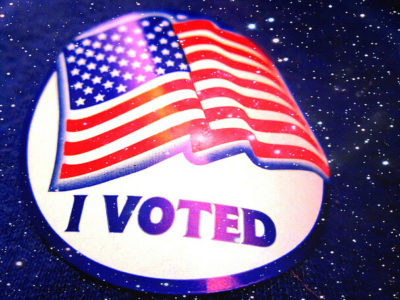The stats behind voting college students aren’t the most impressive. Since 1964 students between the ages of 18 and 24 have been the age group with lowest voting rates (A stat that needs to change!). But sadly, those low numbers have gotten even lower over time.
Just because young people don’t have the highest voting rates doesn’t mean they care the least about social problems. One of the selected Google Doodle winners for this year, high school sophomore Akilah Johnson, designed her doodle to include symbols of support for the Black Lives Matter movement. College student protests in the fall ranged across the country from Yale to the University of Missouri, drawing attention to racial inequalities throughout the country, giving Johnson inspiration. Those protests revealed how much college students care about the politics. So why are the numbers of young people voting so low, when there are so many passionate students?
“As a US citizen you have the right to vote, and you should use that right,” said Boston College junior Amy Su. “It’s one of the things that make our country different from other countries.” And yet she’s not registered. “I’m not registered to vote, because even if I do vote my candidate won’t win this state. There are cases where voting really matters but for a presidential election often states go in the direction they [historically] do.” She has a point. Only about nine states are popularly referred to as swing states, i.e. states widely labeled the only places where people’s votes matter. But the only way to ensure a state stays the red or blue state it has always represented is to assume it will stay that color.
It is important to keep in mind the logistics behind voting as a student, when many aren’t in the states they may be registered in. “I will be receiving an absentee ballot… Last year I could’ve voted but I didn’t get my crap together. If it hadn’t aligned so well coming back for Easter [this year] I probably would not have remembered,” said Boston College junior Anne Donnelly. But this year Donnelly is on her game. “I’ve always really liked politics and the news. I gotta put my money where my mouth is,” said Donnelly, giving solid reasoning. “I will be receiving an absentee ballot.” It’s a fair point that somehow voting nowadays still involves snail mail, which makes it even less attractive.
Some students maintain confidence in the significance of their own vote. “Voting is crucial for college students for the same reason it’s crucial for the rest of the country—in this election, to fight against divisive, aggressive, and arguably fascist politics,” said BC senior Regina Saravia. “It’s essential now more than ever to move away from hostility and belligerence in our foreign policy and toward constructive ties with other nations and to amplify opportunities for everyone in the US, especially those without power.” If you have voted and things don’t go in the direction you wanted, at least you can argue that you did what you could. “You vote to take ownership of your beliefs even though it might not feel like your single vote matters. You’re standing by what you believe,” said BC senior Casey Reardon.
A pair of students, working to ensure students votes for Undergraduate Government of Boston Colege, also support students voting in presidential primaries and general elections (though appreciating the privilege of a democracy is also applicable in college elections!). “I wanted to exercise my vote because we have a sense of responsibility and caring for others,” said Boston College junior Joseph Arquillo. “We should appreciate what we have,” said BC junior Sara Von Schaik beside him. And the best way to appreciate anything is to remember those opportunities exist and to take advantage of what they provide. So go vote already.



















